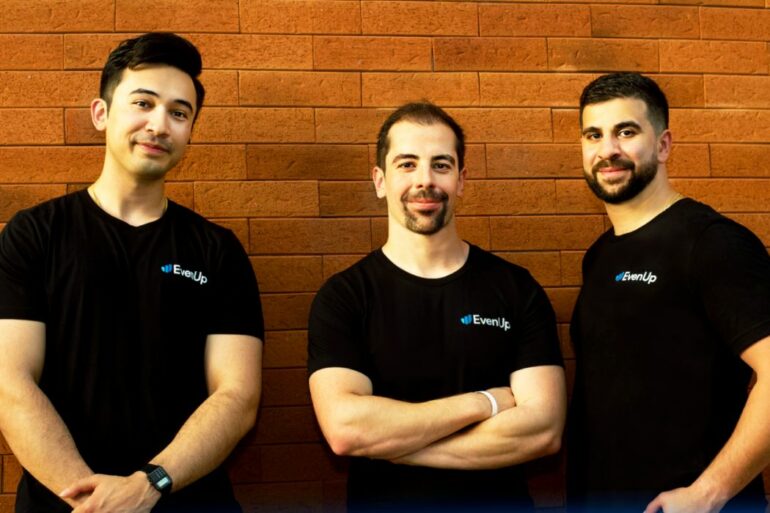EvenUp, a startup established by three founders who finished their studies in Canada, aims to even the playing field in personal injury settlements. The startup offers a generative AI product that can turn raw files such as medical records, bills, and police reports, into legal documents for injury lawyers.
The San Francisco-based company recently closed a $50.5 million Series B round led by Bessemer Venture Partners. Sameer Dholakia, Bessemer partner and co-lead of the firm’s growth investment practice, will join EvenUp’s board.
According to EvenUp, this round brings its total funding raised to $65 million with valuation of $325 million.
Other new investors that participated include the investment arm of Burnaby-based legaltech startup Clio, Bain Capital Ventures, and Behance founder Scott Belsky.
Clio Ventures was launched in 2021 through which Clio backs early-stage partner companies it works with for developing integrations. It recently made an investment in Steno, another legaltech startup, which offers court reporting solutions.
Previous investors in EvenUp who also contributed to this funding include SignalFire, DCM, NXF, and DoorDash executive Gokul Rajaram.
Personal injury lawyers are mandated to ensure the victims they are representing receive the most amount of benefits or compensation in their settlements.
However, most cases are settled out of court and are often kept private, leaving lawyers to guess a settlement proposal for their clients. In turn, the victims can be undercompensated.
In addition, the process of creating the legal documents, also referred to as demand packages, can be time-consuming and prone to error.
EvenUp previously received investments from American rapper Nas and actor Jared Leto.
COO Ray Mieszaniec said he experienced the lack of transparency in personal injury settlements personally. When his father became permanently disabled after being hit by a car, Mieszaniec recalls their lawyer not knowing what an appropriate compensation should be, so his family received a small fraction of what their case was worth.
Mieszaniec, who graduated from Simon Fraser University, is leading EvenUp with McGill University alumni Rami Karabibar (CEO) and Saam Mashhad (chief of product and legal operations).
Proceeds from this round will help EvenUp expand the functionalities of its platform, introduce new products for personal injury and other fields of law, as well as make investments and new hires to support its growth.
EvenUp has made several developments to its offerings leading up to this financing.
This week, EvenUp launched Litty, an AI-powered assistant for personal injury legal practitioners. The startup said Litty is trained on millions of records and hundreds of thousands of case outcomes, meant to interpret raw medical records and create output designed for personal injury use-cases.
RELATED: PainWorth secures $2.1 million CAD to settle personal injury claims using machine learning
According to EvenUp, Litty already powers the demand packages its platform produces.
Short for “litigation,” Litty can summarize disorganized notes and copies of records into clear, coherent medical briefs optimized for injury law, said EvenUp. In coming months, the startup said Litty will be able to autonomously analyze diverse document formats and generate legal output on other aspects of personal injury.
EvenUp has also launched its integration with legal practice operating platform Litify. In this partnership, personal injury attorneys whose practices run on Litify can request demand packages generated by EvenUp’s AI platform, directly from their Litify dashboard.
EvenUp said it can generate a demand package within days and upload the final document directly into Litify.
EvenUp has previously received backing from tech entrepreneurs like Quora CEO Adam D’Angelo and Eventbrite co-founder Kevin Hartz, as well as public figures such as American rapper Nas, actor Jared Leto, and retired professional football player Byron Jones.
EvenUp is not alone in its mission to improve the settlement process for personal injury cases. In Canada, there is Edmonton-based PainWorth, which uses machine learning to simplify claims for personal injury cases. It raised $3.1 million CAD in seed funding in 2022 as it expands its platform to insurance companies.
Featured image courtesy Bain Capital Partners.


